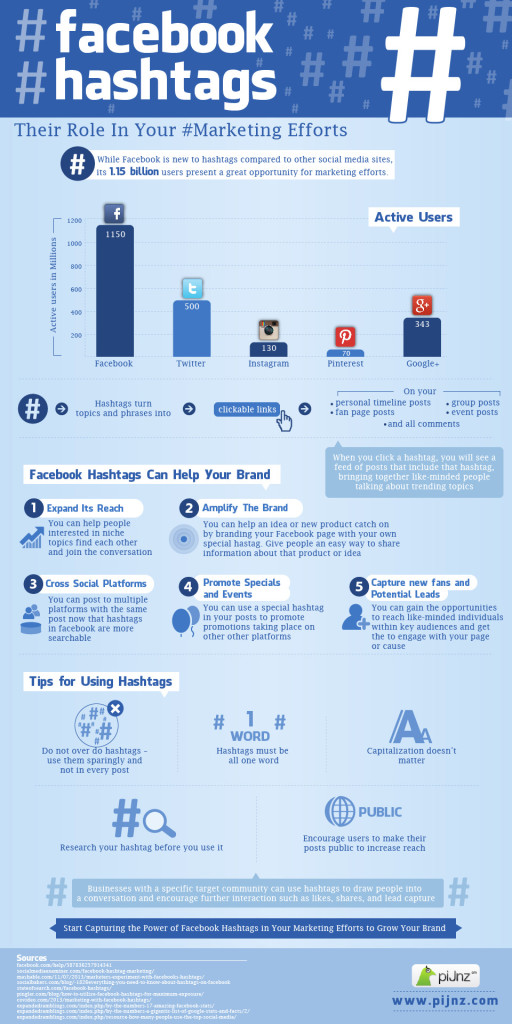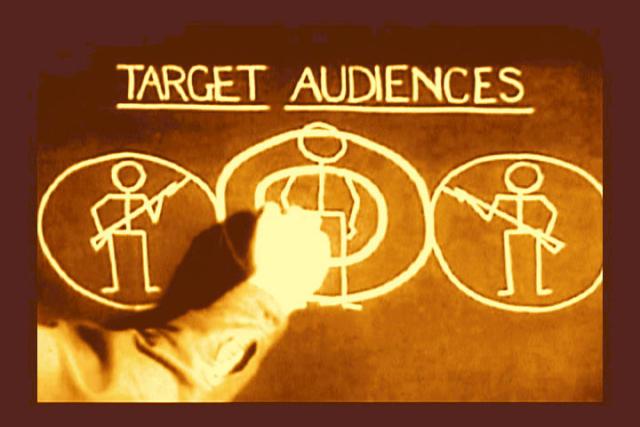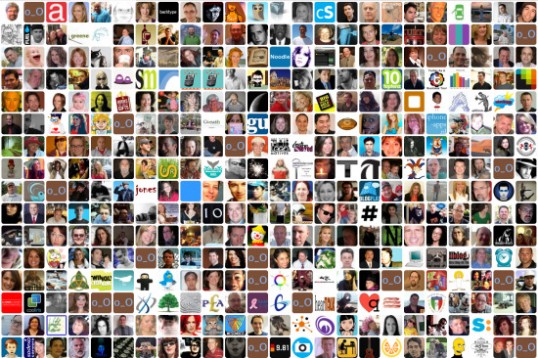Posts Tagged ‘social media’
 4
4
Content Marketing Rules: How to Add VALUE to Your Posts
Content is still king in 2015, but how do you generate meaningful social media that provides VALUE? By focusing on creating content that will be: Visual Amuse and by making sure you Listen Unify Engage with your audience. VISUAL A picture is worth a thousand words, and sometimes a thousand clicks. When you scroll through your news feed on your smart phone, what catches your eye? Photo posts account for 93% of the most engaging posts on Facebook. Photos on Facebook generate 53% more likes than the average text only post (Hubspot 2012). Use pictures and video to your advantage by creating compelling images that share the story of your brand and its impact, your brand’s history, and celebrate your customers. AMUSE Even the most conservative brands and organizations can have fun. Show your wittier side and your fans will love you. Think about the unpredictable humor behind…

If You Tweet It, They Will Come OR Branding, Buzz, And Getting People In
Social media works. Period. Savvy churches are now using social media to fund raise, organize events, and bring people to Christ. The old adage that dictated that the pastor of a church had to use the stage for all formal announcements is over. Churches and their communities are plugged in. Communication 101: reach people where they are. And for a large demographic in today’s world that most likely means via social media. Cross Point Church here in Nashville held an overwhelmingly successful night of praise this week that was completely announced via social media and an impressive 1,500 people showed up to the event. No emails, no church bulletins, no announcements were made. This was pure buzz generated solely via social media. Using powerful imagery and graphics and promoting the event with the hashtags #WorshipNight #OneNightOneVoice, Cross Point built up excitement. By posting on Twitter, Facebook and Instagram, they spread…
 2
2
Facebook Hashtags and Your Marketing Opportunity
Facebook is late to the hashtag game, but with 1.15 billion users, it really doesn’t matter. Use the hashtag effectively and you can harness its power to grow your brand or further connect your message with your target audience. This infographic from PiJnz Tips for using hastags Don’t overdo hastags – use them sparingly and not in every post. Hashtags must be all one word (no spaces). Capitalization doesn’t matter. Before you use a hashtag, do research and ensure that it will work. Encourage users to make their posts public to increase reach. What has been your experience with hashtags?
 8
8
In Marketing Effectiveness Trumps Relevance
There is a lot of buzz about being relevant. Given the chance, I take being effective over relevant any day. The most basic tenet of any marketer is to connect the message to its intended audience. It’s that easy. It’s not that simple. My team at The A Group is currently working on a campaign targeting legacy donors: they have large-gift potential, are motivated by leaving a legacy behind, and are between 65 and 85 years old. A social media campaign is not going to reach them. Most likely, an email campaign will not do much better either. Traditionally, the “Builder” generation responds well to direct mail campaign with multiple pieces and telemarketing ( I can’t believe I just wrote down “telemarketing” but I did). I know that creating a new app would be a lot cooler than trying to print and stuff direct mail. Creating a dynamic microsite with…
 5
5
Marketing and the Conversation Strategy
In the new world of marketing and advertising, it’s not as much about your message as it is about engaging your audience in a dialogue about your message. Long ago marketing was all about exposing a product to the public. As competition grew and more products and services continued to vie for our attention, exposing a product was no longer enough. Marketers then began positioning it within a category or industry. They strived to place products in the minds of consumers by creating an unique promise, claim, or even story. But in today’s social-media drive culture, position is not enough. Consumers want a conversation with their favorite brands. Consumers now want, and will soon demand, marketing that gives them a chance to dialog with their brands of choice. It’s not enough for us to know the story behind our favorite car, soap, or burrito. We now want to be able…
 5
5
What Should Your Online Identity Be?
I was listening to a discussion today about people’s online identity. Years ago it was taboo, and even considered unsafe to have your own name in forums and chat rooms–the precursors of today’s social media. And a lot of people still create user names that allow them to be anonymous. I’m looking at my Twitter feed right now and see names such as “Shoemoney” and “Angelcollector.” Creating pseudonyms online is web 1.o thinking. Intuitively I have always used my first and often last name in chat rooms, forums, and now Facebook, Twitter, Google+, and whatever comes next. The main reason I use my real name online is because, for me, the web is not a place where I go to hide, but I place where I go to connect, share my voice, and engage clients and potential clients. It’s a place where what I do and who I am intersect…
 4
4
What’s the ROI of Social Media?
“We are afraid of wasting money on social media. What’s our ROI (return on investment?)” said a potential client recently. I understand the hesitance, especially from organizations that have successfully fundraised, or sold goods, for decades through more traditional means such as events and direct mail. I understand their concern. It’s a legitimate one. What should they do? Here’s my answer: Continue doing what’s working. If you are finding success through direct mail, it would be foolish to stop pursuing it. But also look at trends and costs. Most likely you are seeing a diminishing return on your investments in these campaigns. With good strategy and planning you can incorporate social media tools inside your traditional advertisement or appeals. Reach a new audience while you can. There are great groups of people that do not respond to letters of appeal or glossy brochures. If you don’t engage them now, you…
 6
6
How Twitter Has Helped Me to Become a Better Writer
For some Twitter is a waste of time. For others it is a way to stay in touch with the world. But it has helped me become a better writer. Twitter forces me to make an argument or develop a thought in no more than 140 characters. In a world of digital verbosity, that’s hard to do. But how much can one communicate in such small chunks, including spaces and punctuation? A lot of people tell me it’s too restrictive. But it has compelled me to focus on the power of words, using them deliberately and effectively–painting a clear picture with few strokes. As a former college teacher, I expected my English composition students to get to the point quickly and give their readers a reason to read on. In a time of endless blogs and social networks where prose flows unfettered, a well-crafted thought has the opportunity to rule…
 5
5
The Tyranny of the Urgent
“I’m already overwhelmed in my job. I have no time left to write a blog post, create a conversation on Twitter, or engage in a Facebook discussion.” I hear it quite often these days. I understand people’s frustrations. We all seem to be tapped out. My answer is simple: you must let go of the urgent and not important and focus on the important but not urgent. Easier said than done. The urgent always demand our attention, whether or not it warrants it. It’s the “needs immediate attention” email you get in the middle of the day, or a “crisis” a client is having you must attend to. Much like disgruntled church members, the “urgent but not important” tasks fill our days and rob us from doing what we should be doing but, unlike its obnoxious counterpart, the “important but not urgent” will not grab us by the neck and…
 10
10
Why Your Social Media Strategy Might Fail
I have lived with an assumption for quite some time that I’m currently questioning. In my mind, digital natives (those who grew up with the internet, mp3 players and smart phones) as opposed to digital immigrants (those of us who had to learn to use such technology) were some of the best candidates to head an organization’s social media strategy. Maybe that’s not so. In the past week I’ve had three different encounters with young professionals who were having a difficult time incorporating social media into their organization’s marketing strategy. And to make things even more interesting, all three of them were Facebook and Twitter users. I was perplexed by their lack of confidence in the media they seemingly knew so well. What I quickly realized from my conversation with my young friends is that while they have been using Facebook, Twitter and even blogging as a personal and social…
